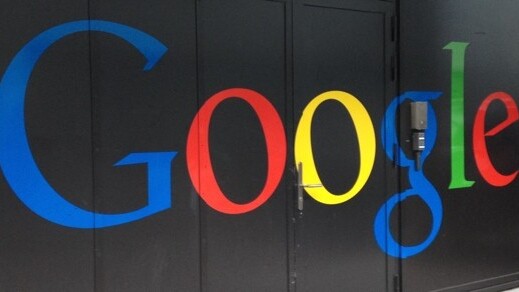
The Next Web’s Drew Olanoff has already given us quite a few good reasons why we shouldn’t concern ourselves with Google+’s numbers, most importantly of all, because statistics aren’t the only means of measuring success. Sure they’re important, but there’s far more to success than that. And as Drew pointed out, Google isn’t sharing the numbers anyway.
The latest Google+/Facebook fixation has been with pageviews, a figure which is highly irrelevant considering that with its search engine, Google could easily trounce Facebook with search results alone. But it wouldn’t mean anything.
Google’s latest announcement, showing how it intends to make search a whole lot more social, means that we’re going to be seeing far more of its own social network in our search results. One of the first few things that comes up when we search for a person’s name is their personal site, their Facebook profile, and possibly Twitter account. You can bet Google+ profiles are going to jump right to the top of that list.
Searching for celebrities, services, or even topics related to an existing Google+ page will probably land you on – yep you guessed it – a Google+ page.
In one fell swoop, Google’s move has finally made the statistics that people are so desperate to discover completely irrelevant.
Who’s killing who?
While 2011 has been, somewhat prematurely, labeled by some the year that Facebook killed Google, or Google lost to Facebook, there are several reasons we can’t be too quick to jump to any conclusions, whether supporting or questioning that line of thought.
These conclusions are based on a specific set of numbers – how many people signed up on this site, how much time is spent on that site, and of course, inevitably pageviews.
The problem with these assumptions is the very fact that they are nothing more than assumptions. We don’t know anything concrete about how much time people are spending on Google+ or how they’re spending that time, because Google is keeping pretty tightlipped about any in-depth statistics. And more importantly, why are we in such a rush to see one social network kill the other?
Rather than focus on the number of times a page has been loaded, or the number of users who have signed up for a service, shouldn’t we be taking a closer look at engagement? At how users are interacting with one another? And dare I say, how users are interacting with advertising on the site?
But if we were to take a look at advertising and monetization, Google would clearly come out on top, as it’s a market that it has cornered long before Zuckerberg’s social network rose in popularity.
Can we really compare Facebook and Google?
To attempt a straightforward comparison between Facebook and Google and choose a winner is futile, because there are too many variables. Each statistic needs to be considered in context with history, company strengths and the current state of social networking, to name just a few.
Facebook has 800 million users, but it took it seven years to get them. Google’s user base looks minuscule in comparison, guestimated at 62 million, but that figure was reached in just four months. On the other hand, if we were to champion Facebook for a bit, we’d say that the environment that Facebook came into was one where social networking was anything but mainstream, and Mark Zuckerberg was one man, not a search giant conglomerate.
So let’s not talk about the number of users either social network has. Let’s talk about company revenue instead. Except if we were to do that, we’d see that Facebook’s revenue for 2011 was probably around $4 billion, while that very same figure is what has been predicted for Google’s mobile ad revenue alone, in 2012. It’s actual yearly revenue is probably about 10 times that of Facebook, and most of it is coming from advertising.
So instead of talking about advertising, let’s take a look at pageviews instead. But we’ve already talked about how that’s a tricky topic. We can talk about either social network’s pageviews all we want, but putting any figure in the context of Google’s search power, the numbers mean nothing. Google supporters could begin to boast far higher pageviews, and its detractors could just as easily say, Facebook doesn’t have the luxury of a search engine on its side.
Whether you’re on Facebook or Google’s side, there’s a comeback for each argument. There’s a qualifier for each statistic. There’s a line of reasoning that serves each social network.
So instead of worrying about numbers, pageviews and statistics, why not use that time to hang out on your favourite social network instead?
Get the TNW newsletter
Get the most important tech news in your inbox each week.




